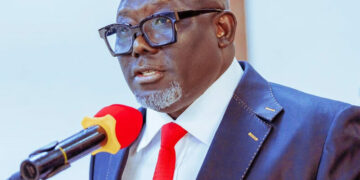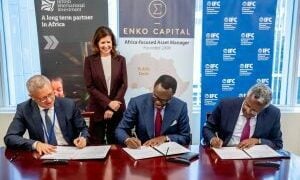The Debt Management Office (DMO) has raised a total of N3.3 trillion from the domestic market to help the government generate revenue to finance the deficit in the 2022 budget.
The federal government had given the debt office a mandate to raise the total sum of N3.56 trillion from the domestic front for the financing of the national budget.
The DMO has also issued a fresh N100 billion SUKUK offer for subscription which is the third of its kind in the domestic capital. SUKUK is a project-tied borrowing that enables the government to raise funding for specific road and bridges infrastructures.
The SUKUK offer and the utilisation which many said is extremely important would close next Tuesday. The current SUKUK instrument has 15.6 percent rental returns. The expectation is that it would be oversubscribed as the previous ones.
Speaking at a stakeholder briefing yesterday in Abuja, director-general of the DMO Patience Oniha said beyond the advantage of financing infrastructure, SUKUK is a retail investment for promoting financial inclusion. The meeting was organized to to sensitise people about the instrument.
“So overall, we’re specifically borrowing to fund infrastructure. But we’re also developing the market and giving people more investment opportunities,” Ms Oniha said while insisting that government borrowing from the domestic market does not crowd out private sector investment in any way.
“Overall, it’s a win-win for Nigeria,” the DMO DG said, stating that it is something that Nigerians have asked for. “Even the contractors are interested because they want to work. So, once they are assured the payment, they go to site and begin to work and when the contractors go to site, they employ people right. And then there are all these other ancillary jobs that are created.”
The funds that would be raised from the debt instrument would be used to finance federal road projects on the list of the Federal Ministry of Works and Housing as well as the Federal Capital Territory.
On whether the government is not worried that borrowing to fund its 2023 budget could be constrained by the tightening spree in the domestic and foreign market, Oniha said it’s difficult to predict the outcome of the market ahead of 2023, which is Nigeria’s election year.
Oniha said the federal government is focused on people that ordinary, would not invest, either for reasons of ethics, or they’re not even aware that their little monies can be invested.




